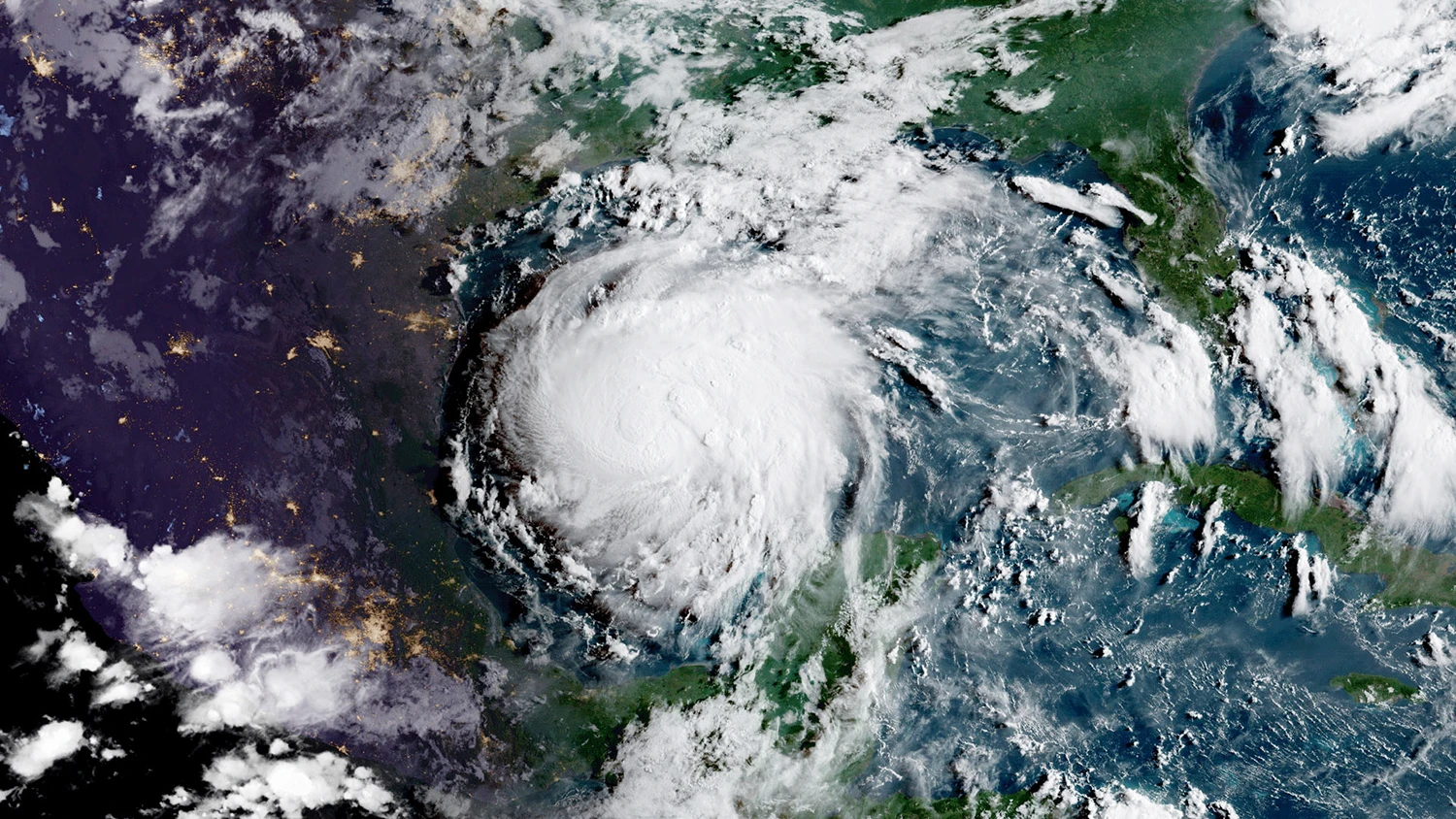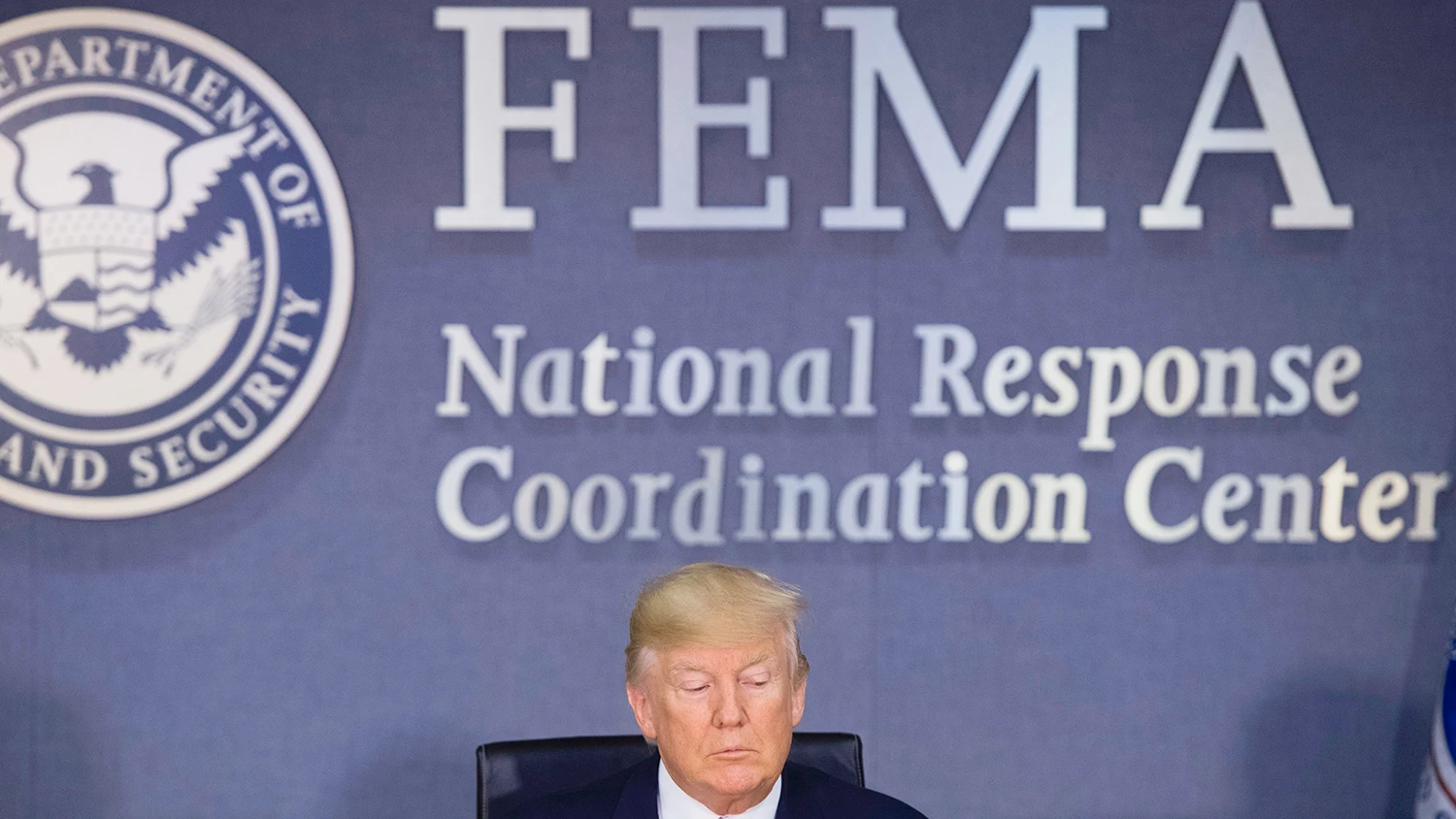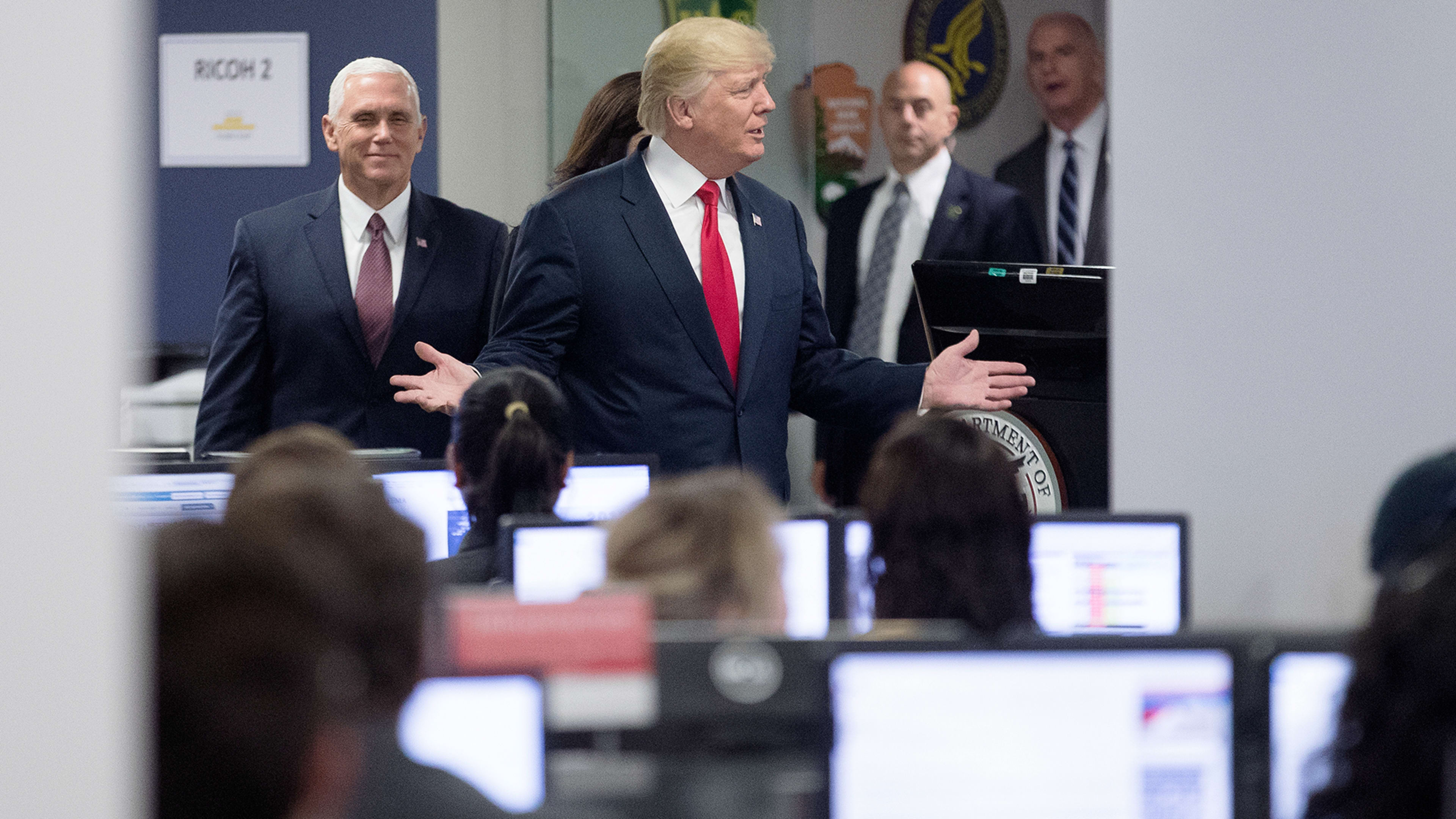A major hurricane–defined as at least Category 3–hasn’t made landfall in the U.S. in more than a decade. That unusual streak could end this weekend, providing the first big test of the Trump administration’s ability to respond to natural disaster at a time when it is proposing significant budget cuts to the Federal Emergency Management Agency.
The National Hurricane Center forecasts that Hurricane Harvey will hit the Texas coast with possible 110-mph winds and could bring life-threatening storm surge as high as 12 feet. Days of rain, up to 3 feet in some areas, may cause disastrous widespread flooding if the storm’s movement stalls over the region. This is the first hurricane to hit Texas since Ike, which slammed the state’s coast in 2008 (and it had dropped to Category 2 by the time it reached Galveston).
FEMA has a crucial role in aiding states’ response to large disasters and has already mobilized for Harvey. But the agency has only had an administrator since June, when Brock Long was confirmed by the Senate (this was already several weeks into the hurricane season). And two key deputy spots are still unfilled at the agency.
Related: Here are the best hurricane-tracking weather apps for Harvey
Experts say they have faith in Long’s ability to weather the emergency. He previously served as the top emergency manager in Alabama and in FEMA’s regional offices. His nomination received overwhelming bipartisan support.
“I’ve seen him in action, and I know he is very good and well experienced. I couldn’t think of anyone right now who would be better,” said Lew Fincher, a hurricane consultant and historian. On the phone from his home in Friendswood, Texas, on Thursday, he was boarding up his windows as he awaited word whether there would be evacuation orders. Voluntary and mandatory evacuation orders have already been put in place for some areas.
New Jersey Sen. Cory Booker, one of only four senators to vote against Long’s nomination, did so because Long supported FEMA cuts being proposed by the White House. “While recognizing that Mr. Long is an experienced emergency management professional, Senator Booker could not vote in favor of a nominee who supports a reckless budget that undermines the capabilities of the very agency he was asked to lead,” said Booker’s press secretary, Thomas Pietrykoski.
David Paulison, a Democrat who led FEMA under President Bush after the agency infamously botched its Hurricane Katrina response, also felt confidence in the leadership in place at the agency. “I’m comforted also by the military presence in the White House itself,” he said, referring to Trump’s chief of staff, John Kelly.
Under Paulison’s watch in 2005, Hurricane Wilma was the last Category 3 storm to hit the U.S., just months after the federal government’s slow response to Katrina sent Bush’s approval rating to new lows. Former FEMA chief Michael Brown, who was known for heading the International Arabian Horse Association until appointed by Bush, had just resigned.
Reforms put in place since Katrina, Paulison said, ensure professional leadership and better lines of communication between the White House, FEMA, and local responders on the ground. Under President Obama in 2012, the agency was applauded for its capable handling of Hurricane Sandy, which was the nation’s second most-costly storm and led to more than 200 deaths.
 [Photo: Flickr user NASA Goddard]
[Photo: Flickr user NASA Goddard]
Yet if there’s one place where the communication response has the potential to get botched, it’s right at the top. In the face of criticism or pressure, Trump has a habit of taking to Twitter to place blame or send confusing signals. On Friday morning, at least, his tweeting so far about the approaching storm was on message.
“In a disaster, it’s so important that everyone follows the plan that we have tested,” says Jonathan Rhodes, executive director for the Louisiana Civil Justice Center, which provides legal assistance to disaster-affected populations.
“We rely on clear direction from FEMA, and we have specific contracts with FEMA…that govern our response. We’ll be expecting to follow those, and independent tweets or direction from the president could potentially be confusing to the established lines of communication.”
Hurricane Harvey could also prove a challenge to some of Trump’s budget-cutting promises. Under the White House 2018 budget blueprint, FEMA’s budget could be cut by $667 million, potentially hurting grant programs including one designed for pre-disaster preparedness.
As the number of disasters, and the costs incurred by them, has increased since FEMA was created nearly 40 years ago, the administration has argued that larger reforms are needed to put more of the burden at the local and state level. Even more drastic cuts to FEMA have also been pushed by the Heritage Foundation, an influential conservative think tank in Washington.
Since Trump took office, he has denied federal disaster aid to states in a number of smaller-scale emergencies, including major snowstorms in Oregon and Pennsylvania, tornadoes in Louisiana, and the Montana wildfire, to the general outcry of state leaders. The administration approved less than one percent of the $929 million in aid requested by North Carolina for longer-term rebuilding after Hurricane Matthew last year, which Gov. Roy Cooper called an “incredible failure.”

“There has been significant discussion on ways to reduce federal disaster costs,” she said (these started during the Obama administration). “We need a long-term sustainable solution; not a quick fix and shift.”
Less clear is how much a priority any extreme weather preparedness will be in an administration that doesn’t recognize accepted climate science. For example, a recent White House executive order rolled back Obama-era standards that required sea-level rise be considered when building new infrastructure. In an interview with Bloomberg in August, FEMA’s Long wouldn’t acknowledge that humans are warming the planet and said the cause of disasters didn’t matter to his mission of preparing for and responding to emergencies.
Meanwhile, in Texas, Fincher said that he expected a major mobilization over the next few days as Harvey makes landfall either Friday night or Saturday morning. “This is as serious as going to war, except we are going to war against nature. You can tweet all you want, that hurricane doesn’t care. It’s going to do what it wants to do,” he said.
Recognize your brand’s excellence by applying to this year’s Brands That Matter Awards before the early-rate deadline, May 3.
